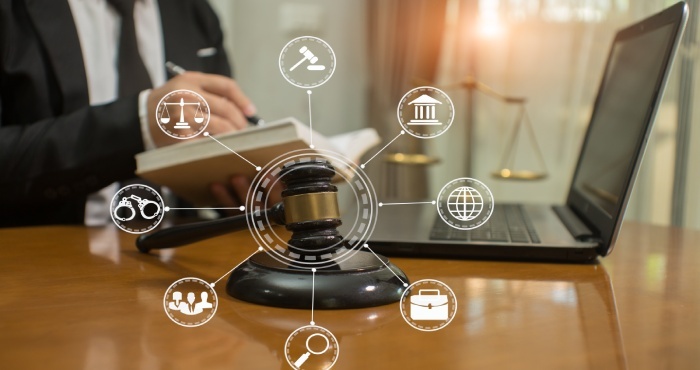In the current automotive landscape, buyers depend on car manufacturers to deliver vehicles that are trustworthy, safe, and built to last. However, despite rigorous quality assurance processes, some cars continue to have recurring flaws that make them unsafe or unsuitable for driving. In California and several other states, this situation is governed by Lemon Laws, designed to safeguard consumers against faulty vehicles. A key strategy for resolving these matters is the manufacturer buyback program.
This article investigates how these buyback initiatives affect Lemon Law claims, outlining their advantages, challenges, and the broader consequences for both consumers and the automotive sector.
Understanding Lemon Laws
Lemon Laws are regulations that vary by state, aimed at safeguarding buyers of faulty vehicles that can’t be fixed after a reasonable number of attempts. A vehicle is typically identified as a “lemon” if:
- It has a serious defect impacting its safety, value, or functionality.
- The manufacturer or dealer has tried to repair the issue multiple times, generally around three or four.
- The problem continues to exist within a set period or mileage, usually during the first 18 months or up to 18,000 miles of ownership.
In California, the Song-Beverly Consumer Warranty Act establishes the basis for Lemon Law protections. According to this legislation, if a vehicle is classified as a lemon, the manufacturer must either replace it or refund the buyer’s money. This framework allows consumers to seek recourse without being unfairly burdened by a defective product.
Manufacturer Buyback Programs: Definition and Purpose
A buyback program initiated by a manufacturer is either voluntary or mandated by the court, allowing an automotive company to reclaim a faulty vehicle from its owner. Such a program is usually set in motion when a vehicle proves unfixable after multiple repair attempts or poses serious safety risks.
The main objectives of these buyback initiatives are:
- Consumer Protection: Making sure that buyers are not unfairly burdened financially for acquiring a defective vehicle.
- Brand Reputation Management: Preserving consumer confidence and reducing negative exposure by proactively addressing issues.
- Legal Compliance: Meeting the requirements of Lemon Laws to prevent expensive lawsuits or fines from the state.
Typically, buyback programs offer compensation for the vehicle, which can include the purchase price, taxes, fees, and occasionally, related expenses like towing or rental costs incurred by the owner.
How Buyback Programs Influence Lemon Law Claims
Simplifying the Claims Process
Manufacturer buyback programs significantly simplify the process for Lemon Law claims. Typically, pursuing Lemon Law claims requires a lot of paperwork, numerous repair attempts, and occasionally, court proceedings. With a buyback program in place, manufacturers can provide a more direct and predictable solution for consumers facing issues, ultimately making it easier and less stressful for them to seek compensation.
Boosting Consumer Assurance
These buyback initiatives signal a manufacturer’s dedication to quality and responsibility. Customers who know about these programs often have heightened confidence in their purchases, reassured that they have options if problems occur. Consequently, this assurance may lead to fewer contentious Lemon Law claims, as many issues can be resolved amicably through the buyback process.
Influencing Legal Tactics
For attorneys specializing in Lemon Law, buyback programs shape their legal approach by offering a clear basis for negotiations. When manufacturers voluntarily propose a buyback, lawyers can use this as a part of the settlement discussions. This frequently results in quicker resolutions, sparing both the consumer and the legal system from protracted litigation.
Opportunity for Lower Legal Expenses
Buyback initiatives can significantly lower the expenses related to Lemon Law cases. Engaging in litigation typically incurs costs for attorneys, court fees, and extended timelines, which can be both financially burdensome and emotionally draining. By implementing a buyback option, manufacturers not only adhere to Lemon Law provisions but also lessen the chances of costly legal disputes. This results in a beneficial outcome for both parties: consumers gain appropriate compensation, while manufacturers reduce financial and reputational liabilities.
Impact on Settlement Figures
The design of buyback programs can influence the amounts settled in relation to Lemon Law claims. Often, manufacturers will propose a full refund or offer a replacement vehicle, aligning well with Lemon Law remedies. Nevertheless, the reimbursement calculations may differ, factoring in variables such as mileage, usage, and other associated costs. It is crucial for consumers and their legal representatives to examine these offers thoroughly to ensure they align with their legal rights.
Challenges and Limitations of Buyback Programs
Manufacturer buyback programs offer notable advantages, but they also come with certain drawbacks. Consumers should be aware of these issues when considering participation in such programs.
1. Depreciation and Deductions
These buyback initiatives often factor in the vehicle’s depreciation due to usage and mileage. For instance, if a car has been heavily used prior to being returned, the manufacturer may subtract a prorated amount from the refund. This can lead to a lower payout for consumers and may spark disputes regarding equity.
2. Scope of Coverage
Not every issue may qualify for buyback. Manufacturers typically restrict buybacks to serious or safety-related defects, leaving minor or aesthetic problems outside the program’s coverage. This can force consumers to seek separate repairs or compensation for other issues.
3. Geographic and Legal Variability
Lemon Laws and the availability of buyback programs differ from state to state. A program available in California might not be accessible or might function differently elsewhere. It’s essential for consumers to comprehend the Lemon Law protections in their state to ensure fair treatment.
4. Timing and Delays
Even with a buyback program in place, there can be delays in processing claims. Consumers might experience waits of weeks or months for inspections, evaluations, and payments, especially if there’s a dispute over the vehicle’s condition or depreciation. Such delays can be exasperating and may require legal resolution.
Role of Lemon Law Attorneys in Buyback Programs
Despite the existence of buyback programs, Lemon Law lawyers are essential in guaranteeing that consumers are treated fairly. These lawyers can:
- Analyze Buyback Proposals: Determine if the manufacturer’s compensation offer aligns with legal standards.
- Negotiate Compensation: Seek additional funds to address mileage deductions, incidental costs, and other rightful claims.
- Advocate for Consumers in Conflicts: If a buyback offer is insufficient or disputed, attorneys can assist consumers in navigating formal Lemon Law processes.
- Offer Legal Guidance: Inform consumers about their rights, deadlines, and the necessary procedures under state Lemon Laws.
By applying their expertise, attorneys aid consumers in maneuvering through the intricacies of buyback programs and ensure adherence to legal protections.
Consumer Considerations Before Accepting a Buyback
Before agreeing to a manufacturer’s buyback proposal, consumers should take the time to assess various important elements:
- Full Compensation: Verify that the offer encompasses the original purchase price, along with taxes, fees, and any extra costs linked to the flawed vehicle.
- Impact of Depreciation: Be aware of how factors like mileage and usage may affect the amount refunded.
- Replacement Vehicle Suitability: Consider if the replacement option aligns with your requirements and preferences.
- Legal Protections: Make sure that accepting a buyback does not forfeit any further legal rights or entitlements.
- Record Keeping: Keep detailed documentation of all repair efforts, correspondence with the manufacturer, and costs associated with the issue.
By following these guidelines, consumers can make well-informed choices and fully benefit from buyback programs.
Broader Industry Implications
Manufacturer buyback initiatives carry considerable consequences for the automotive sector:
- Promoting Enhanced Quality: When companies buy back faulty vehicles, they can identify recurring issues, which leads to enhancements in both design and manufacturing processes.
- Fostering Brand Loyalty and Image: Taking the initiative to buy back vehicles can reinforce customer loyalty, showcasing the manufacturer’s commitment and responsiveness, even amidst defects.
- Shaping Market Trends: Extensive buyback efforts can impact the used car market, as returned vehicles might be refurbished and offered as certified pre-owned, influencing pricing strategies and buyer perceptions.
- Ensuring Compliance with Regulations: By adhering to Lemon Law standards through buyback practices, manufacturers can steer clear of expensive fines, recalls, and legal challenges, promoting better operational efficiency and compliance.
Manufacturer buyback initiatives significantly impact the realm of Lemon Law claims. They offer consumers a streamlined, legally sound way to resolve issues with faulty vehicles, while also aiding manufacturers in managing their risks, reputations, and regulatory responsibilities. By simplifying the resolution process, boosting consumer trust, and lowering legal expenses, these initiatives provide an effective means of addressing automotive defects.
Nonetheless, consumers should carefully assess buyback proposals by considering factors such as compensation, vehicle depreciation, their legal rights, and the overall terms of the program. A Lemon Law attorney in San Diego plays a vital role in this process, ensuring that car owners’ rights are fully protected and that they receive fair treatment under the law.
As the automotive sector progresses, especially with the rise of technologies such as electric and self-driving cars, buyback programs are poised to become even more critical in influencing Lemon Law results. Both manufacturers and consumers need to stay alert, well-informed, and proactive to achieve fair and just outcomes in the dynamic automotive environment.







